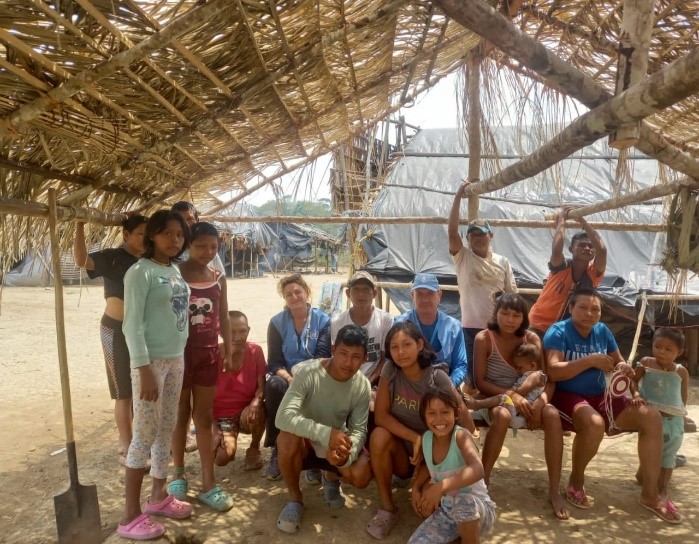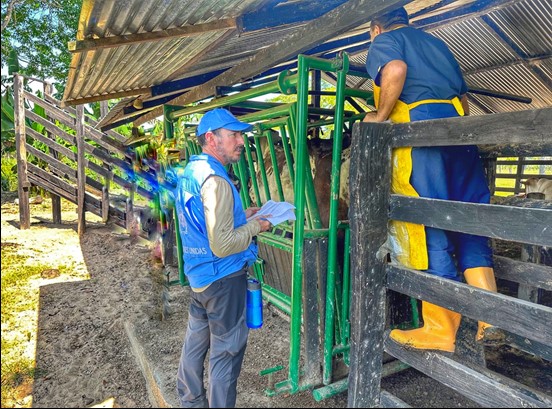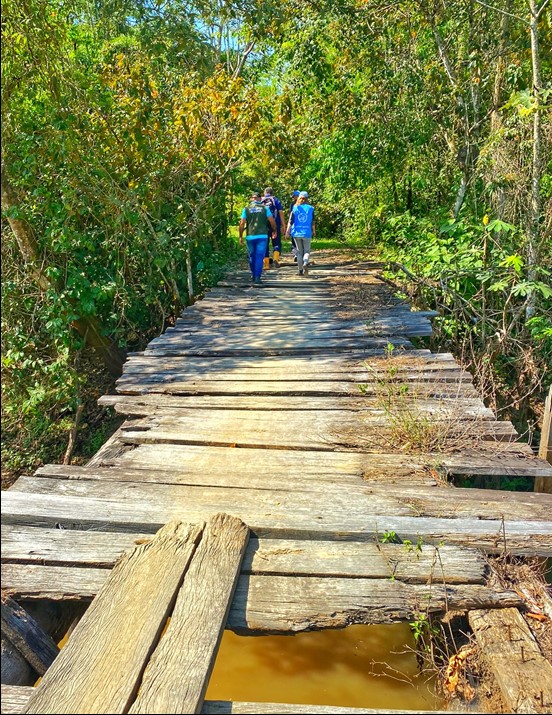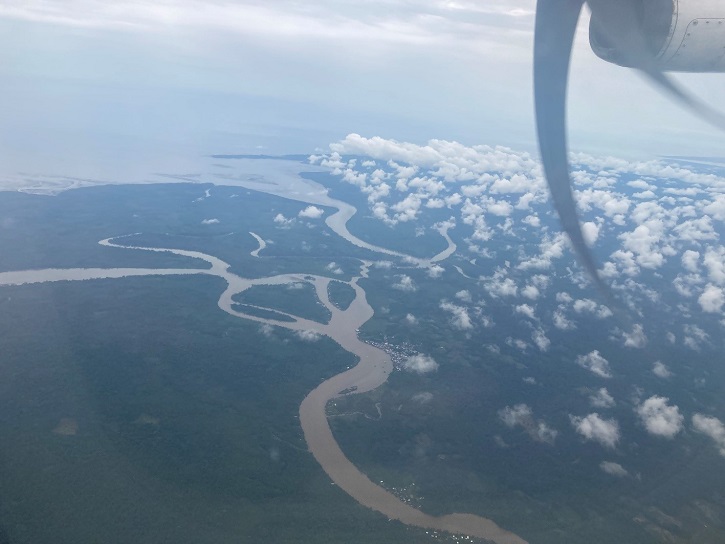
United Nations Verification Mission in Colombia

The mission, led by the UN Department of Political Affairs (DPA), aims to monitor and verify the disarmament and to be part of the tripartite mechanism overseeing the final bilateral ceasefire and cessation of hostilities following the signing of the Peace Agreement.
The agreement, signed in Bogotá on 24 November 2016, was passed by the Congress of the Republic of Colombia on 30 November 2016.

Spain has eight observers deployed in Colombia. Five Officers from the Armed Forces and three Officers from the Civil Guard or equivalent ranks from the National Police Corps dependent on the Ministry of the Interior.
The deployment of the Spanish observers started on 15 November 2016.
This is a UN mission under the Security Council Resolution UNSCR 2261. It comprises the following phases:
- Phase One (Preparation): the aim is to establish the mission's headquarters in Bogota and to assess the conditions in the eight regional centres identified by the parties where the mission will also have presence.
- Phase Two (IOC): it focuses on preparing the mission to operate at the local level with representatives of the Government of Colombia and the Revolutionary Armed Forces of Colombia Army-People’s Army (FARC-EP).
- Phase Three (FOC): deployment of all UN observers and implementation of the tripartite monitoring and verification mechanism.
Phase 2 began after the signing of the Peace Agreement. The mission was scheduled to last one year for phases 2 and 3, although it could be extended.
Despite the results of the 2 October 2016 plebiscite in Colombia, in which the people did not ratify the Peace Agreement, the United Nations Security Council approved the verification of the implementation of the ceasefire protocol. This decision implied the authorization for the deployment of additional observers necessary for this purpose. In this deployment, the international observers would carry out their function without weapons.
The deployment of the Spanish observers was carried out at the General Headquarters in Bogota. They were later integrated into local teams (Team Sites). Once in Bogota, they underwent a period of training for the performance of their tasks, prior to their deployment in the verification areas.
Although the mission was conducted under the authority of the UN, the Operations Command is monitoring the mission and the military observers. Security, logistical and medical support will be provided by the Colombian government in coordination with the United Nations.
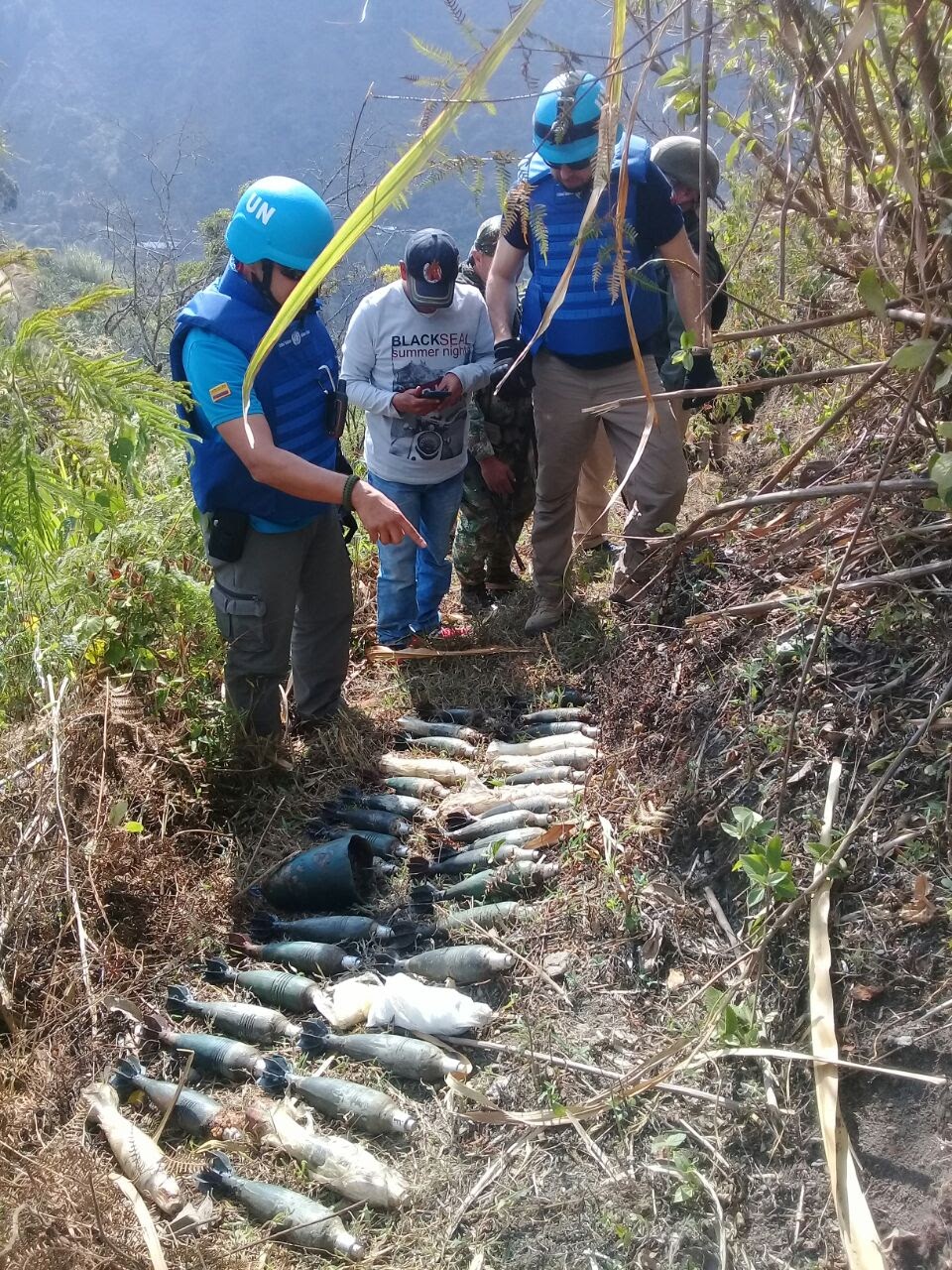
Following the UN Security Council Resolution 2261/2016 of25 January, it was decided to establish a political mission in which the UN will take part as the international component and coordinator of the tripartite mechanism (together with the Government of Colombia and the FARC), in charge of implementing a Peace Agreement in that country, through the monitoring and verification of the ceasefire and cessation of hostilities, as well as the laying down of arms. The resolution states that such participation will be carried out through unarmed international observers. This mission is known as MISSION I.
Subsequently, by UN Security Council Resolution 2366/2017 of July 7, a Second Political Mission, known as MISSION II, was established. This mission, a continuation of the previous one, had an initial duration of 12 months. Starting on September 25, 2017, its main task was to verify the complete reinsertion and reintegration of former FARC-EP personnel, and to guarantee their security.
At the end of 2017, it was agreed that the United Nations elements necessary to verify the "Temporary, Bilateral and National Ceasefire" agreed between the Government of Colombia and the National Liberation Army (NLA) in the "Quito Agreements" would be integrated into MISSION II. However, this ceasefire ended on 09/01/2018. More recently, since 10 December 2022, the UN, through its Special Representative and Head of MVNUC, has been accompanying the peace talks between the Colombian government and the NLA, in the framework of the "Total Peace" process promoted by its president, Gustavo Petro.
In relation to the mandate and its progressive extensions, since the end of November 2021, the Security Council has extended the mandate to verify the own sanctions imposed by the Special Jurisdiction for Peace in accordance with point 5.1.2. of the Final Peace Agreement. Likewise, on 01 November 2023 the Security Council approved a resolution extending the mandate of the UN Verification Mission in Colombia to include the integral rural reform, Point 1 of the Agreement, and the ethnic chapter among its verification tasks".
The United Nations Security Council, by Resolution 2754 of October 30, 2024, agreed to extend the mandate of MVNUC until 31 October 2025.
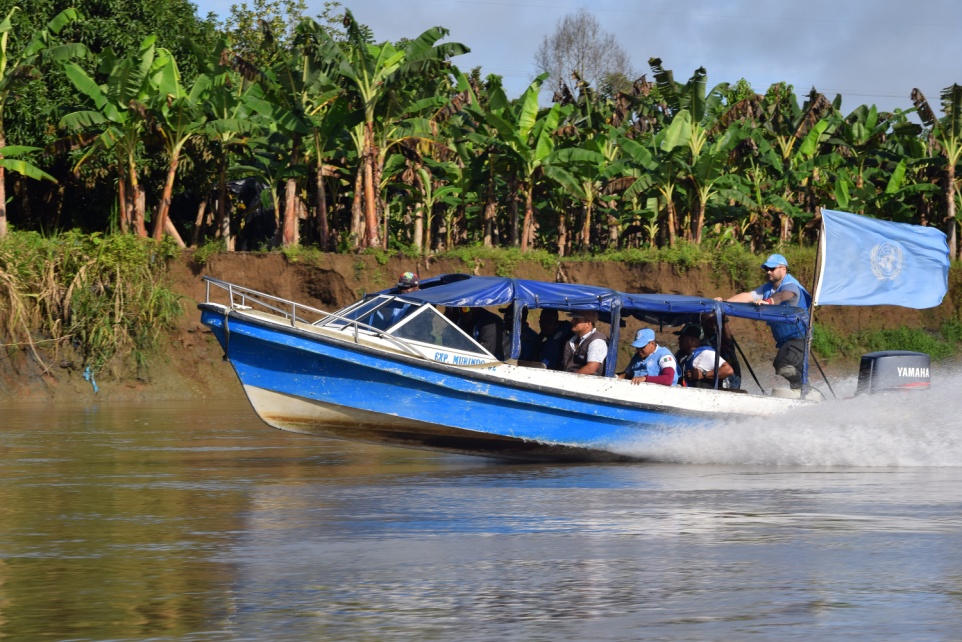
On 26 August 2012, the Government of Colombia and the Revolutionary Armed Forces of Colombia-People's Army (FARC-EP) signed the General Agreement for the Termination of the Conflict and the Construction of a Stable and Lasting Peace in Havana, Cuba.
On 19 January 2016, the Government of Colombia submitted a request to the Secretary-General and the President of the United Nations Security Council attaching the Joint Communiqué of the Government of Colombia and the FARC-EP.
The Final Peace Agreement between the two included a bilateral and definitive tripartite mechanism to monitor and verify the ceasefire and cessation of hostilities as well as the laying down of arms. It also recognized the contribution that a United Nations observer mission can make in the context of this tripartite mechanism.
Once the mandate of the first mission concluded, the Security Council establishes the MVNUC to verify the reincorporation of former FARC-EP combatants and the communities most affected by the conflict, as well as to guarantee their security.
On 11 May 2021, through the Resolution 2574, the mission's mandate was extended to include the verification of compliance with the sanctions issued by the Special Jurisdiction for Peace.
On 11 January 11 2023, through the resolution 2673, the mandate was extended to include the monitoring of the implementation of the chapters of the ethnic and integral rural reforms.
2023
- March 10th. Message from the Guarantors and Permanent Accompanying Persons at the Negotiating Table of the Peace Dialogues between the Government of the Republic of Colombia and the National Liberation Army.
- January 11th. By Res. 2673 (2023), the UN Security Council extended the mission's mandate until October 31, 2023.
2022
- November 29th. Army Colonel Fernando Pedrosa Carrera is appointed head of the Spanish contingent in Colombia.
2021
- November 24th. 5th Anniversary of the signing of the Peace Agreement. The UN Secretary General visits Colombia for the second time".
- October 29th. By Res. 2603 (2021) the UN Security Council extended the mandate of the mission until October 31, 2022.
- May 11th. The United Nations Security Council decides by Resolution 2574 to extend the Verification Mission until October 31, 2021.
2020
- October 24th. Army Colonel Fernando Pedrosa Carrera is appointed head of the Spanish contingent in Colombia.
- August 5th. Spanish Brigadier General Saenz de Santa Maria who held the post of MILAD of the MVNUC returned to Spain.
2019
- July 14th. To support the Peace Agreement and the presence of the Mission in Colombia, the Security Council, along with the 15 ambassadors of the member countries, visits Colombia.
- July 3rd. Spanish Brigadier General Saenz de Santa Maria is appointed head of the military advisors for the United Nations verification mission in Colombia.
2018
- September 13th. The United Nations Security Council decides by Resolution 2435 to extend the Verification Mission of the agreement between the Government of Colombia and the Common Alternative Revolutionary Force (FARC in Spanish) until September 25th , 2019.
- July 17th. Second round of the presidential elections, resulting in the victory of candidate Ivan Duque.
- January 9th. End of the Temporary, Bilateral and National Ceasefire.
2017
- June 27th. Operational actions for the laying down of arms were completed.
- March. Registration of FARC EP weapons at local headquarters in the Philippines and Pondores is completed.
2016
- December 1st. The Colombian Congress approves the Peace Process between the Colombian government and the FARC.
- November 15th. The first Spanish military component is deployed on the mission.
- July 29th. Order of Deployment for the UN mission in Colombia
- January 25th. United Nations Security Council Resolution 2261/2016.
2012
- August 26: The Colombian Government and the Revolutionary Armed Forces of Colombia-People's Army (FARC-EP) signed in Havana, Cuba, the General Agreement for the Termination of the Conflict and the Construction of a Stable and Lasting Peace.
EMAD Press Releases ON MVNUC
-
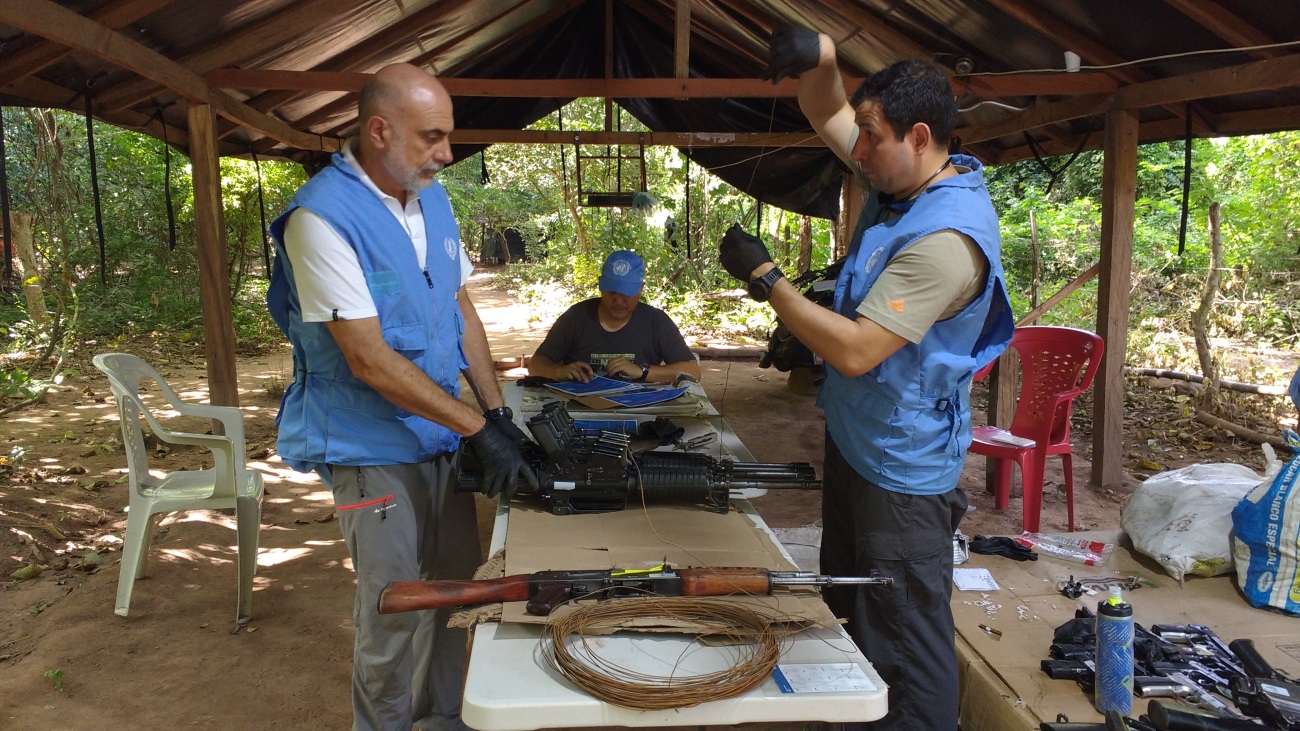
The United Nations Mission in Colombia turns into a new mission aimed at verification
The United Nations Mission in Colombia turns into a new mission aimed at verification
2017/10/01Bogotá, Colombia
More information


